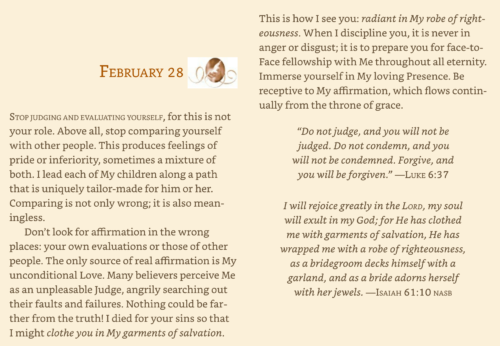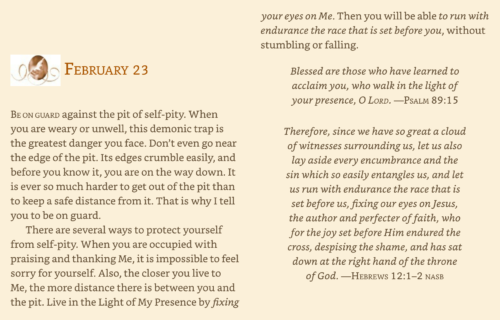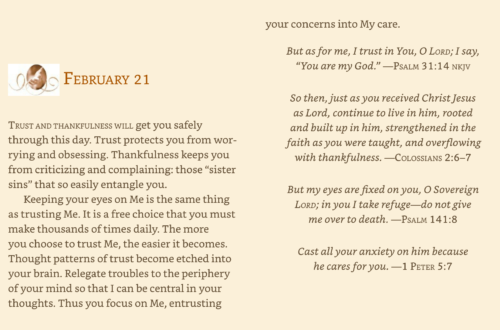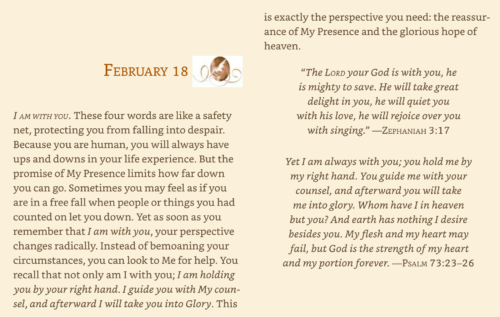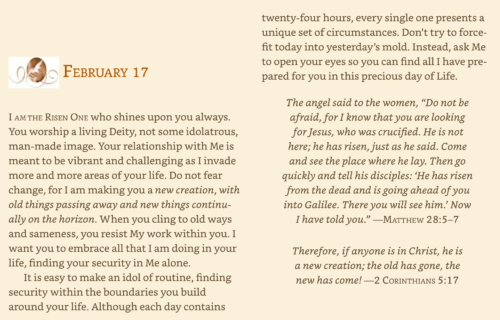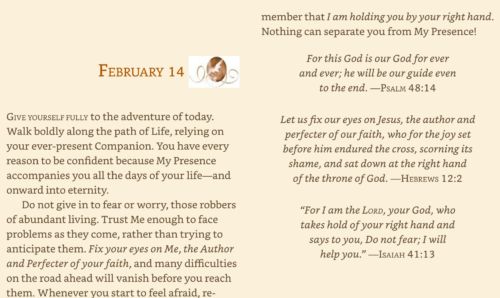Trusting Our Essential Self
This week Father Richard Rohr shares some of his core teachings about the True Self, the place where the Divine Presence exists in us:
Searching for and rediscovering the True Self is the fundamentum, the essential task that will gradually open us to receiving love from and giving love to God, others, and ourselves. We are created in the image of God from the very beginning (Genesis 1:26–27; Ephesians 1:3–4).
You (and every other created thing) begin with your unique divine DNA, an inner destiny as it were, an absolute core that knows the truth about you. This true believer is tucked away in the cellar of your being, an imago Dei that begs to be allowed, to be fulfilled, and to show itself. “You were chosen in Christ before the world was made—to stand before God in love—marked out beforehand as fully adopted sons and daughters” (see Ephesians 1:4–5). This is your True Self. Historically, it was often called “the soul.”
Jesus revealed and accepted a paradox in his entire being: the human and divine are not separate, but one! His life shouted it. I wonder why we so resist our same destiny? For most of us, this seems just too good and too dangerous to be true. There is so much contrary evidence! Many clergy fight me on this, even though it is quite constant in the Tradition. Is it because we are afraid to bear the burden of divinity? As Marianne Williamson says: “Our deepest fear is that we are powerful beyond measure.” [1] Maybe we realize subconsciously that if we really believed that we are temples of God (see 1 Corinthians 3:16, 6:19; 2 Corinthians 6:16), then we would have to live up to it.
The True Self is the Divine Indwelling, the Holy Spirit within you. I would say that the True Self is precisely the divine part of you that is great enough, deep enough, gracious enough to fully accept the human part of you. If you are merely human, you will tend to reject your embarrassingly limited humanity. Think on that!
Paradoxically, immense humility, not arrogance, characterizes someone who lives in this True Self. You simultaneously know you are a child of God, but you also know that you didn’t earn it and you are not worthy of it. You know it’s entirely a gift (see Ephesians 2:8–9 and throughout the Pauline writings). All you can do is thank Somebody Else, occasionally weep with joy, and kneel without any hesitation.
The true purpose of mature religion is to lead you to ever new experiences of your True Self. If religion does not do this, it is junk religion. Every sacrament, every Bible story, every church service, every sermon, every hymn, every bit of priesthood, ministry, or liturgy is for one purpose: to allow you to experience your True Self—who you are in God and who God is in you—and to live a generous life from that Infinite Source.
Our True Self Is Life Itself
Father Richard shares his belief in the eternal nature of the True Self and its ability to connect us to ultimate purpose and meaning:
As disappointed as I get with religion, I can’t give up on it. Only healthy religion is prepared to point us beyond the mere psychological to the cosmic, to the universal, to the absolute. Only healthy religion is prepared to realign and reconnect all things and reposition us inside of the whole, in true community instead of mere individualism.
Only your soul can know the soul of other things. Only a part can recognize the whole from which it came. But first something within you, your True Self, must be awakened. Most souls are initially “unsaved” in the sense that they cannot dare to imagine they could be one with God/Reality/the universe. This is the illusion of what Thomas Merton (1915–1968) called the “false” self and what I have taken to calling the “separate” or small self that believes it is autonomous and separate from God.
Thomas Merton said that the True Self should not be thought of as anything different than life itself—but not my little life—the Big Life. [1] Franciscan philosopher John Duns Scotus (c. 1266–1308) said that the human person is not different or separate from Being itself—not the little being that you and I get attached to and take too seriously, but Universal Being or “the One in whom we live, and move, and have our being,” as Paul said to the Athenians (Acts 17:28).
When we’ve gotten too comfortable with our separate self and we call it Life, we will get trapped at that level and we will hold onto it for dear life—because that’s the only dear life we think we have. Unless someone tells us about the Bigger Life or we’ve had a conscious connection with the deepest ground of our being, we will continue to live as though we are separate from God.
The final, stupendous gift is that our “separate” self becomes the raw material for our unique version of True Self. Our ordinary lives and temperaments are not destroyed or rejected. They are transformed. Or, as the Preface of the Catholic funeral liturgy puts it, our little life is “not ended but merely changed.” “This perishable nature will put on imperishability, and this mortal body will put on immortality” (see 1 Corinthians 15:52–54)—one including the other, not one in place of the other.
Your True Self is Life and Being and Love. Love is what you were made for and love is who you are. When you live outside of Love, you are not living from your true Being or with full consciousness. The Song of Songs says that “Love is stronger than death. . . . The flash of love is a flash of fire, a flame of YHWH” (Song of Songs 8:6, Jerusalem Bible). Your True Self is a tiny flame of this Universal Reality that is Life itself, Consciousness itself, Being itself, Love itself, God’s very self.
